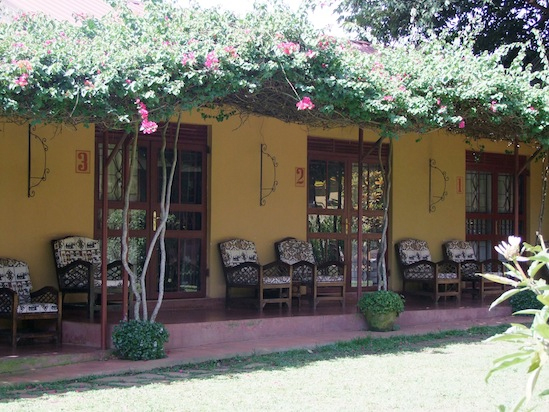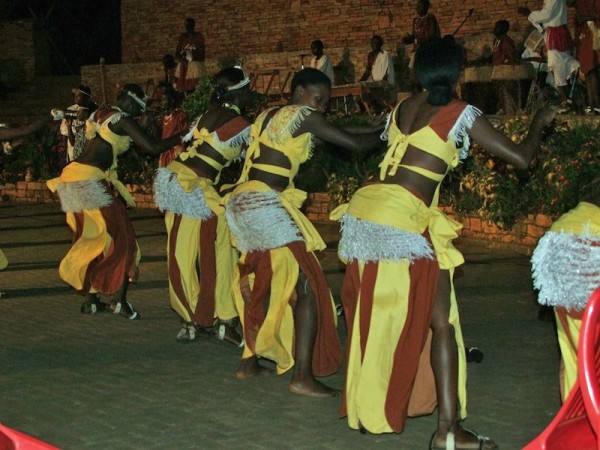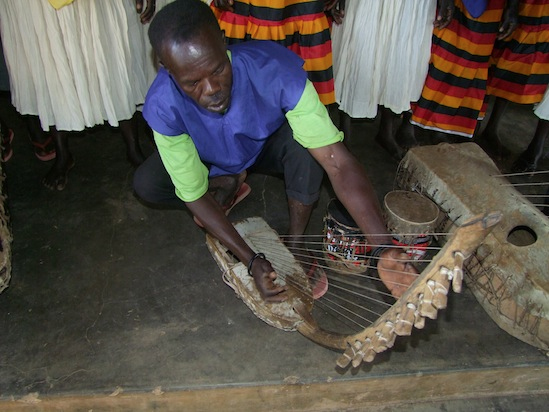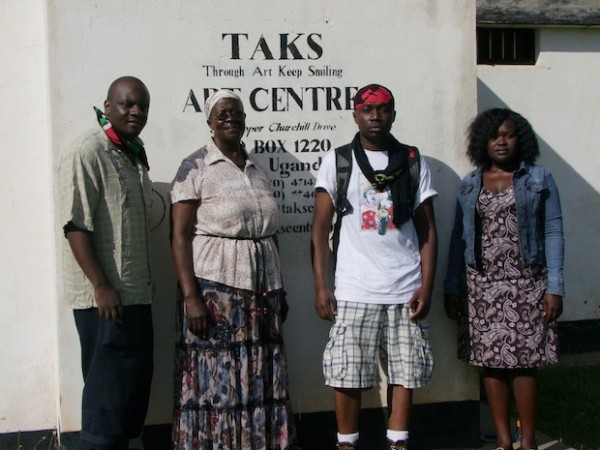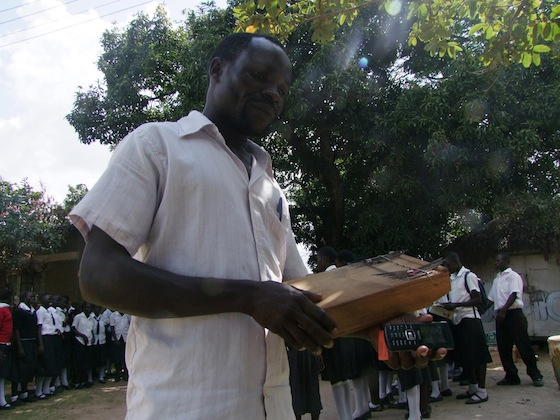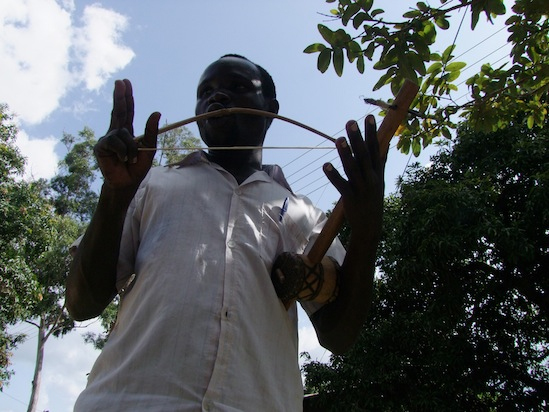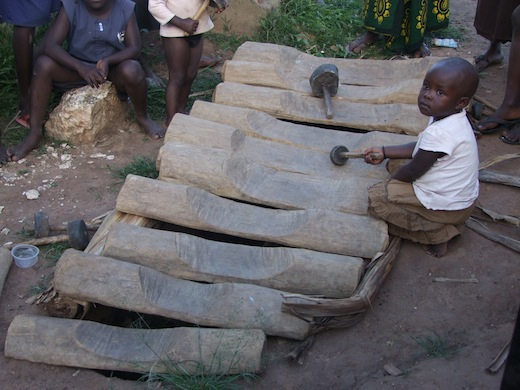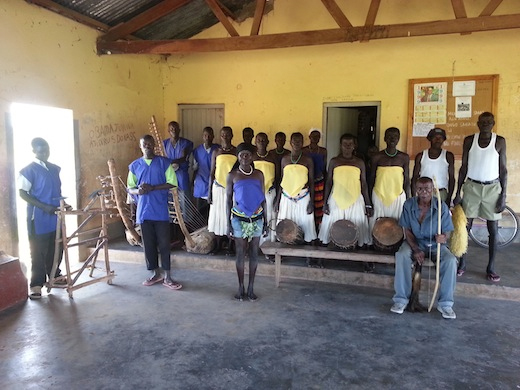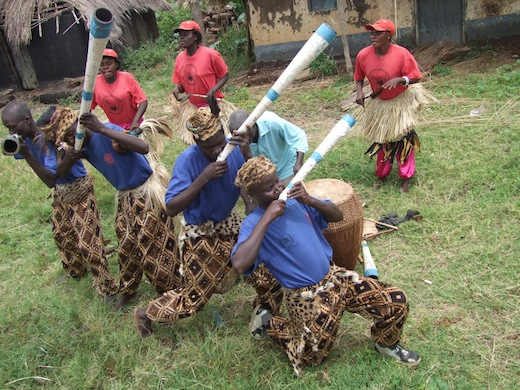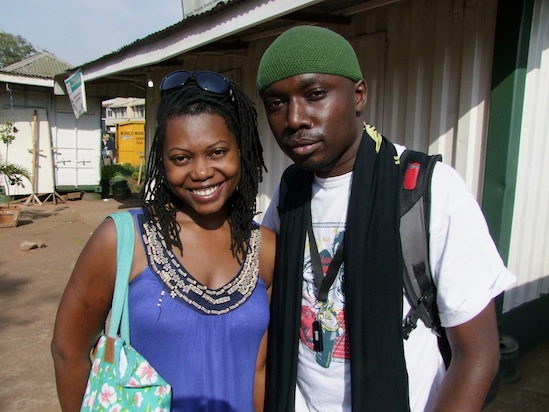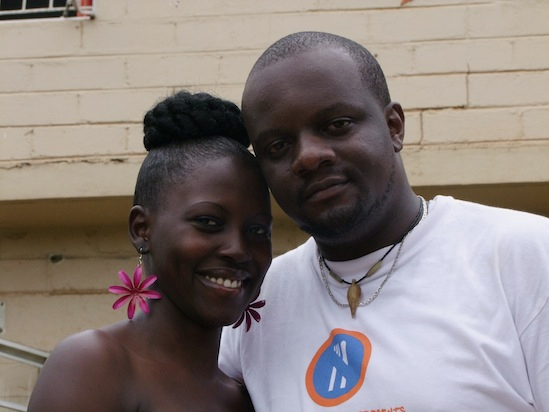Steve and Patrick have been to Uganda to carry out a recce for the Singing Wells field visit in December. They spent 6 days doing research for the trip, starting in Entebbe and Kampala and travelling to Gulu, Arua, Nebbi and Pakwach in the north to explore the music of the area. They covered a lot of ground, quite literally as the distances between these towns are considerable!
Entebbe/Kampala
The recce started with a meeting with JanWillem van der Kamp and some of the staff at the Entebbe Airport Guesthouse. JanWillem is the manager of the Traveller’s Rest Hotel in Kisoro where we stayed during our field visit to Uganda last year for the Music of the Batwa. He is also marketing manager for Habari Travel which owns both the Traveller’s Rest and the Entebbe Airport Guesthouse plus other tourist hotels in Uganda. During their meeting, Steve and Patrick were grateful for some really useful information given about travelling to the north of the country and where to find the music. Mary, Rose, Dnalega Bonnars and Charles all talked about different tribal communities we are planning to visit in December – the Langi from Lira, Iteso from Soroti, Lugbara from Arua and the Acholi from Gulu.
Ndere Troupe
While in Kampala, Steve and Patrick watched a performance by the Ndere Troupe at their centre in Ntinda, just outside the city centre. The group perform music from all the major tribes of Uganda during a very energetic performance which includes a historical narrative in between songs given by their director, Rwangyezi Stephen. He has a vast knowledge of the cultural history of Uganda which he narrates in a very engaging and captivating style.
Steve and Patrick were very impressed by the performance and spoke with Rwangyezi about the possibility of recording the Ndere Troupe for Singing Wells when we arrive back in Kampala in December.
Travelling to Gulu
From Kampala, Steve and Patrick set off on the long, 340km drive to Gulu. The main tribe in the area is the Acholi whose instruments include a traditional harp, the ‘adungu’ and a wooden trumpet, the ‘agwara’.
While in Gulu, Steve and Patrick had two very useful meetings with Joyce Laker, the Director of the TAKS Centre (Through Art Keep Smiling). Joyce founded the centre with her brother, Ugandan sculptor David Lukani Odwar in 2005, transforming a former colonial golf club to a place for training and exchange and to promote and celebrate local cultural achievements. Joyce and David aim to engage people in post-conflict Northern Uganda in the creative arts; resuscitate local arts, crafts and arts education and recover, heal and develop local cultural traditions.
Although Steve and Patrick were not able to meet any local music groups while they were in Gulu (it was planting season so everyone was in the fields planting their crops), Joyce gave them many recommendations for villages to visit on our December trip. She mentioned Agago to record ‘bwola’ and ‘otole’ dances and Pawili to record ‘larakarak’. Finally, she said we would find the ‘dingidingi’ musicians back in Gulu itself.
Travelling to Arua
The journey to Arua from Gulu is 250km along good roads which the guys were pleased about! The tribes in the area are the Alur and the Lugbara. Instruments include the ‘adungu’ (harp); ‘agwara’ (wooden trumpet); ‘ndara’ (giant xlylophone); ‘likembe’ (thumb piano) and the ‘rikiriki/dongu’ (a fiddle similar to the orutu from Nyanza region, Kenya).
Steve and Patrick were able to witness the playing of some of there instruments, including the likembe, rikiriki and the ndara, all pictured here:
The ndara or giant xylophone is made by digging a hole in the ground and placing fresh banana tree trunks around the edges. Wooden planks of various sizes and tones are then placed over the hole. The instrument is played using a wooden stick with a large rubber head.
One of the groups the guys were able to see perform in Arua was the Aynu Traditional Music Group, led by Mustafa Draza. The group are from the Lugbara tribe and play the adungu, the ari (log drums) and a tin sheet for percussion.
Travelling to Nebbi
The drive from Arua to Nebbi is 175km on mostly excellent roads. Here Steve and Patrick saw a perfomance by the Alur Kingdom Troupe who are based in a village called Nyaravuru, just outside Nebbi and represent the Alur, Madi and Kebu tribes. They are well known in East Africa and have performed at various state functions in Uganda and also at the Senator Leger Festival since 2004. They play many of the traditional Ugandan instruments including the adungu, agwara, ndara, rkikriki, obilo (a horn) and the oseke (pan pipes).
With time fast running out, Steve and Patrick headed back to Kampala to meet with two Ugandan musicians who had expressed an interest in contributing to our Influences series for Singing Wells – a fusion of traditional and contemporary music. They met with Tshila, a guitarist and singer from the Baganda tribe who we first came across when she performed for the BBC series ‘Africa Beats’, and then with Jackie Akello from the Acholi tribe who has just started out on a solo career after having been a backing vocalist for Susan Keronnen, a popular Ugandan singer.
Lira and Soroti
Our field visit to Uganda in December will include the areas surrounding Lira and Soroti. In Lira we will be recording the music of the Langi tribe and have been recommended two groups from the area – Deno Cultural Group and Lango Cultural Group. Instruments used include the ‘wece nyom’ – a set of drums used exclusively during the ‘abuda’ dance (a marriage dance). Another is the ‘ngwara gwata’ which is made from a hollowed out calabash.
In Soroti we will record the music of the Iteso tribe whose musical style is ‘Akogo’ and instruments include a drum called the ‘ateus’ and the ‘akogo’, a thumb piano.
Singing Wells – Music of Northern Uganda
We arrive in Entebbe on 29th November and will be recording in the field from 1st to 5th December, arriving back in Kampala on 6th December. From 7th-9th December we will be in the Ketebul Music studios recording for the Influences series.

